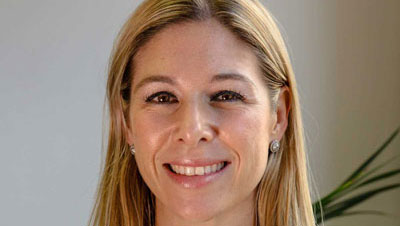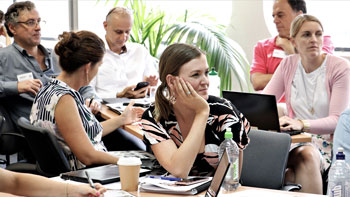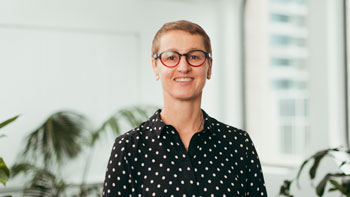The AISNSW Research to Practice initiative is boosting the skills of primary teachers to deliver the Science and Technology Curriculum, leading to greater confidence and efficacy in teaching all KLAs, a new evaluation has found.
The AISNSW Research to Practice initiative showed educators demonstrated marked improvements in their Science and Technology syllabus knowledge and understanding over the course of a year. The initiative, launched in 2016, also gave teachers greater confidence to design more engaging learning experiences, which led to greater student achievement.
“Many teachers remarked that their programming and teaching were more strongly aligned to syllabus outcomes, and that they had a better understanding of how to design learning experiences that both reflected these and led to improved student outcomes,” Kelly said.
AISNSW Head of Teaching and Learning Kelly Borg said key findings from The Evidence Institute evaluation showed educators felt better equipped to teach the KLA effectively and program future learning opportunities reflecting syllabus outcomes while helping their students connect Science and Technology to everyday life in fun and interesting ways.

AISNSW Head of Teaching and Learning Kelly Borg says Research to Practice impacts on the quality of their teaching.
“Many teachers remarked that their programming and teaching were more strongly aligned to syllabus outcomes, and that they had a better understanding of how to design learning experiences that both reflected these and led to improved student outcomes,” Kelly said.
The Research to Practice initiative draws on the OECD-endorsed Spiral of Inquiry framework for collaborative inquiry, as well as the latest evidence in effective teaching and learning. Over 12 to 18 months, teams of educators from individual NSW independent schools worked in close partnership with a dedicated AISNSW consultant to reflect on their professional practice, undertake deep syllabus familiarisation and complete highly contextualised professional learning. These teams collected information on their students’ learning, and their thoughts and feelings about learning Science and Technology. They then analysed the data to identify areas for pedagogical change, and developed and implemented new programming.

Teachers reported they felt better equipped to teach Science and Technology effectively.
“Research confirms that long-term mentoring and coaching is one of the most impactful modes of professional learning,” Kelly said.
“All participants commented on the value of the knowledge and experience AISNSW consultants shared – from syllabus and pedagogical knowledge to advice on programming, assessment, and teacher practice – and its impact on the quality of their teaching.
Assistant Head of The Evidence Institute Dr Lesley Wright said recent research indicates that improvements in confidence increase educators’ ability to negotiate the challenges associated with teaching Science and Technology.

Assistant Head of The Evidence Institute Dr Lesley Wright.
“For educators who had implemented practice change in the classroom, student understanding of Science and Technology improved, along with their excitement for, and engagement with the KLA. Students undertook scientific investigations, used more scientific language, and recognised the relevance of Science and Technology learning in their daily lives.”
“All participants commented on the value of the knowledge and experience AISNSW consultants shared – from syllabus and pedagogical knowledge to advice on programming, assessment, and teacher practice – and its impact on the quality of their teaching."
Improvement was also partly driven by the educators’ engagement with the Spiral of Inquiry framework.
“It provided them a mechanism to examine international research and gather evidence about their specific contexts, ensuring they were reflective and responsive to the needs of their students,” Lesley said.
“Data sometimes challenged educators' understandings of their practices and student engagement. Using authentic evidence, they were better able to identify ways to change that were more likely to improve the learning experiences of their students.”
The highly impactful Research to Practice professional learning opportunity is available to member schools in 2021, and is open all primary educators teaching any KLA or subject. Extensions are possible for K-10 teaching teams.